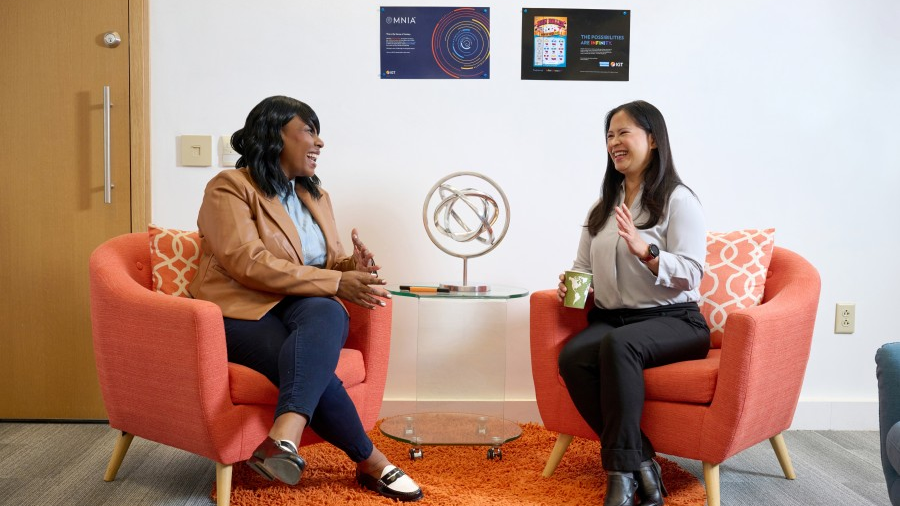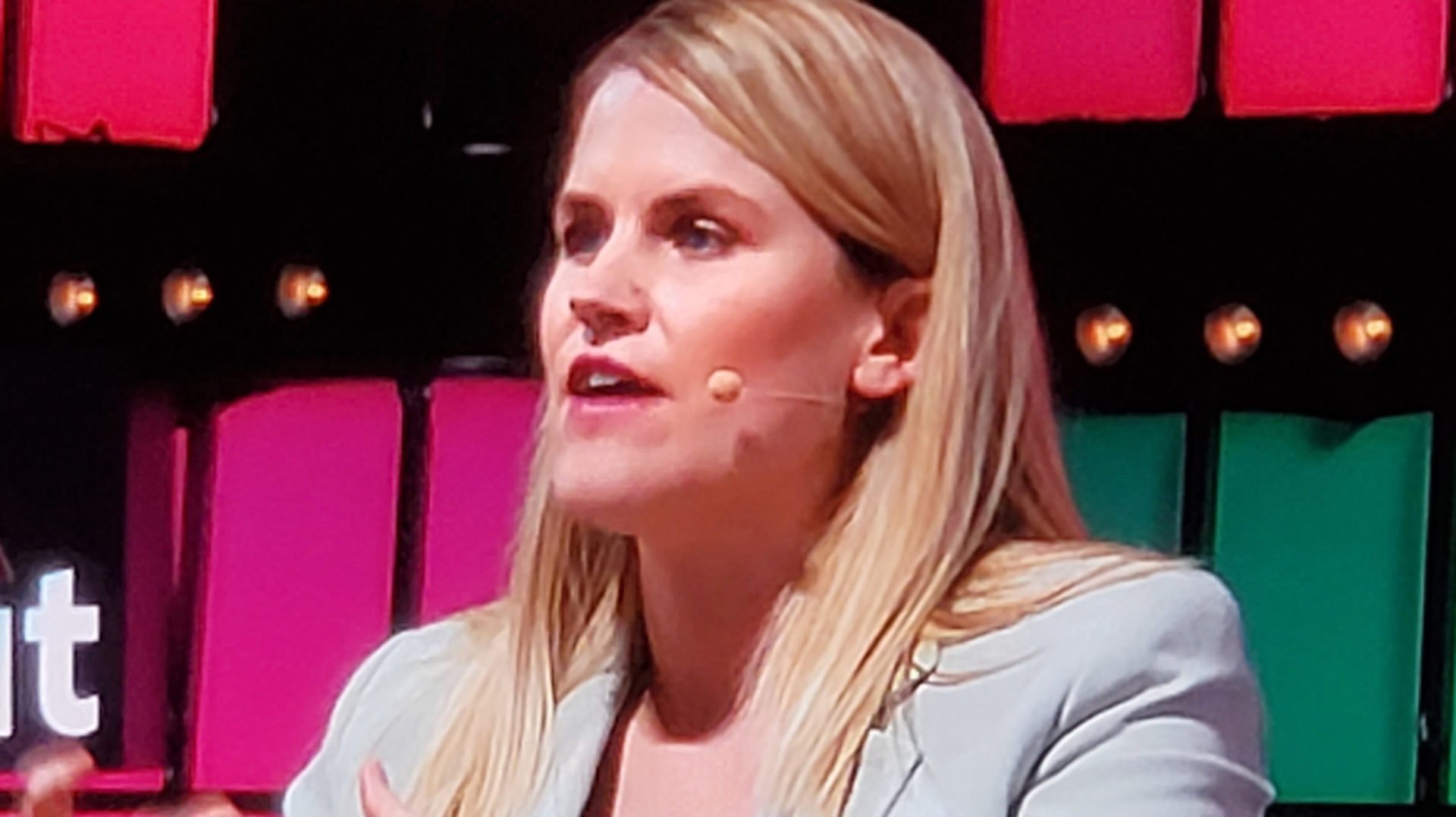Like so many, we at Techonomy mourn the death of George Floyd. At this historic moment, we recognize the consequences of unfair treatment of minority communities in the United States, and we pledge to redouble our own commitment to racial equality and equal treatment under the law for all Americans.
We work in the world of technology and business, and are deeply and sadly aware that racial inequality, discrimination, and exclusion are major problems in that world, too. There can be no excuse, and we must all do better. To help amplify the many brave voices of those working for real change, we share here a small number of relevant highlights from past Techonomy events. We hope the perspectives and insights of these thoughtful and powerful activists will continue to inspire meaningful conversations and action.

Kimberly Bryant on Creating an Inclusive Tech Industry
As founder of Black Girls Code, Kimberly Bryant works to ensure the technology sector is more inclusive, and to show that girls and girls of color are as talented as anyone. She spoke at Techonomy 2018.

“…If you look at look at Black and Brown, Black and Hispanic students that are graduating with a computer science degree, that’s about 19–15% for the past five, six, seven, eight years, but we’re only about 3% Black and Latinx in the industry. So, that tells me there’s something else going on there and there’s a lot of barriers to these learners even getting a seat, a foot in the door.
“It’s about making sure that these girls know it’s okay to be their full selves. Because that was my reality. I was not just an engineer. I was not just a woman engineer throughout the 20+ years of my life. I was a black woman in a male dominated technical field. And I could not take that identity off, but I needed this next generation to know it was okay to bring their full self to the table.”
“This work that we’re doing around diversity and inclusion…I don’t think it should fall just on my shoulders, as a Black woman. It’s my burden to make this space better for my daughter and girls like her. But it’s our burden as a society to make sure we build inclusive spaces.”

Sharawn Connors and Bari Williams on Diversity & Inclusion as a Strategic Advantage
In conversation at Techonomy 2019 with attorney and diversity strategist Bari Williams, Sharawn Connors, VP of Diversity and Inclusion at Micron, discusses pushing for progress in the workplace, her approach to building an inclusive culture, and why D&I is a core strategic advantage for companies.

“We can see how bias is built into our systems and our technology, so there’s a huge opportunity there. Bari and I were having lunch and we were talking about how this type of discrimination and bias is unethical and almost criminal. In particular, I was thinking of Oakland, California, where a software was piloted to identify areas that were predicted to have high crime and high drug sales. But unfortunately, what that algorithm was doing was highlighting areas that had a high population of minorities, regardless of the crime rate. So that’s just one example of how we need to ensure that as we’re designing software and utilizing AI and machine learning, we’re being inclusive and we’re thinking about everyone as we’re building, creating, and innovating.”
– Sharawn Connors, VP, Diversity and Inclusion, Micron
“Leaders in tech and business must take active steps to recruit in places you don’t normally go—including Historically Black Colleges and Universities. Be willing to sponsor someone who does not remind you of yourself. That’s the key to building a truly inclusive workforce—and driving business results.”
– Bari A. Williams, diversity/inclusion strategist, VP of Legal, Business and Policy Affairs at All Turtles
Tony Prophet on Why Business Must Embrace Equality
Tony Prophet is Chief Equality Officer at Salesforce – and no other major company even has that role. At Techonomy 2018, he discussed how business can bring genuine humanity into the workplace.

“I honestly feel we’re at an inflection point in the history of civil society and you see in many parts of the world these forces rising of populism and nationalism and xenophobia and islamophobia and homophobia and transphobia. And all of these terrible dark forces in society rising and finding a voice and coming out of the shadows… Business leaders, I believe, have an inherent responsibility – if you’ve been blessed with a platform by your stakeholders, you’ve got an inherent responsibility to use that platform for the betterment of society.
“Any well-run company, any CMO, any CEO, any board of directors–if you’re not thinking about these issues of diversity and inclusion and equality, what’s happening inside your company, and what it means for your brand, you ultimately are going to have a problem.”
Marlin Page on Diversity and Inclusion in Technology
Marlin Page, Founder of Sisters Code, talks candidly and eloquently about diversity and inclusion in technology at Techonomy Detroit 2014. At that same conference, Page also participated in a panel discussion entitled “The Digital Divide: How Can the Tech Industry Become More Inclusive?”

“I found myself as the only African-American woman in many technology environments. And that started my work in inclusion. If we want to increase the number of women and minorities in tech, we must be intentional. This doesn’t include a coding boot camp or recruiting program just to check a box. The steps must include access, individualized education and most of all inclusion.”
“One thing I heard from some people with a seat at the table is, “I don’t see color,” which I believe is passive aggressive and leads to excuses. So to this I say, ‘No. I need you to see me. Please see my color.’ I show up as a whole person in every situation and every environment. I’m Black all day, everyday. Don’t stereotype me, but please understand that my race lends itself to experiences which can bring a richness of ideas, innovations, and perspective. Choosing not to see my color leaves way too much on the table. And speaking of the tables – who is at the table? When we find ourselves at a table having conversations around engaging more women and people of color in tech, but you don’t see a representative of the people you’re trying to empower at the table, speak up.”
Jasmine Crowe on Stopping Food Waste and Transforming Communities
Entrepreneur Jasmine Crowe is the founder & CEO of Goodr, a rapidly-growing national network that saves leftover food and gets it to those in need, using blockchain technology. She spoke at Techonomy 2019.

“I became the 35th Black woman to raise a million dollars in August of last year…It’s a good thing, but it’s a bad thing, right? In 2018, there’s no reason why I shouldn’t have been the thousandth Black woman to raise over a million dollars in funding… I couldn’t change the color of my skin nor my sex but what I could say is that I was solving a problem that no one else was solving.”













